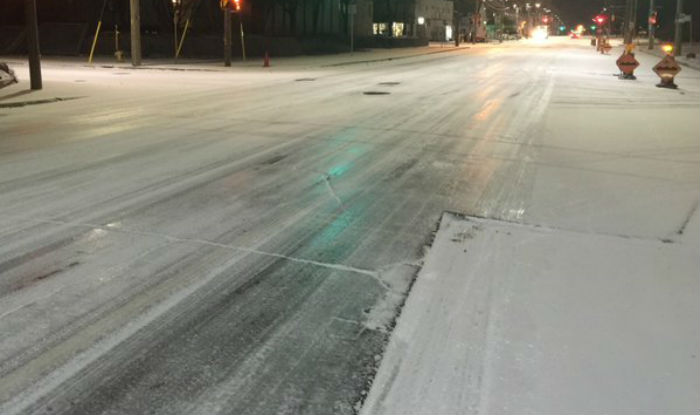

Before magnesium chloride was used on Interstate 70 as a de-icer, plow operators had to apply sand and salt continually to ensure safety. – Disadvantages: If snow is falling hard, it can be difficult for plow operators to keep up with applications. Best for use on roads where cars go fast, like on the interstate.
#Cinders for icy roads drivers#
– Advantages: Salt and sand serve drivers well if roads can be kept clear. The sand provides traction the salt melts snow and ice. – What: A procedure that involves plowing the roads, then strewing a sand and salt mixture – sometimes as high as 25 percent salt – onto roads. – Who uses it: CDOT, Vail, Glenwood Springs, Dillon and Avon (limited use)

We do support the use of mag chloride, even though on certain days it creates operational problems.” “Mag chloride is difficult for operations, but on the flip side, it makes the roads safer, and it eliminates problems with people driving into our equipment – those numbers are down. “Generally speaking, when we get a pole fire, it’s mag chloride that’s the culprit,” Stutz said. When a storm moves through, the chemical buildup allows the electricity flowing through the wires to arc, starting a fire.įor cel, however, it’s just another part of doing business, as is dealing with heavy snows, squirrels that jump from wire to wire and contractors who accidentally cut wires while digging. When roadways that have had mag chloride applied to them dry out, vehicle traffic grinds the powder into a fine dust that settles on the poles and equipment. Mark Stutz, spokesman for cel Energy, said company officials believe most of the power pole fires to which they respond every year are primarily a consequence of dried magnesium chloride. State studies so far indicate that the concentration at which the chemical is usually mixed does not harm plants, animals or streams. Other studies, notably those conducted by various state transportation departments, indicate it is less corrosive than other chemicals. Vehicle repair shop owners claim the chemical causes deterioration in car parts, notably brakes, ball joints and rubber parts, faster than salt and sand mixtures. – Disadvantages: Mag chloride gets splashed onto windshields and headlights, and its sticky nature makes it difficult to remove. Unlike sand and volcanic cinders, mag chloride does not clog streams or contribute to air pollution.

Rust inhibitors, which include small quantities of heavy metals such as cadmium, arsenic and lead, make magnesium chloride less corrosive than other products. – Advantages: Studies – including those conducted by the Colorado Association of Transit Agencies, CDOT, the Colorado Department of Public Health and Environment and independent researchers – show mag chloride is highly effective at temperatures down to about 25 degrees, but only until snowmelt dilutes the compound to the point it can refreeze.


 0 kommentar(er)
0 kommentar(er)
